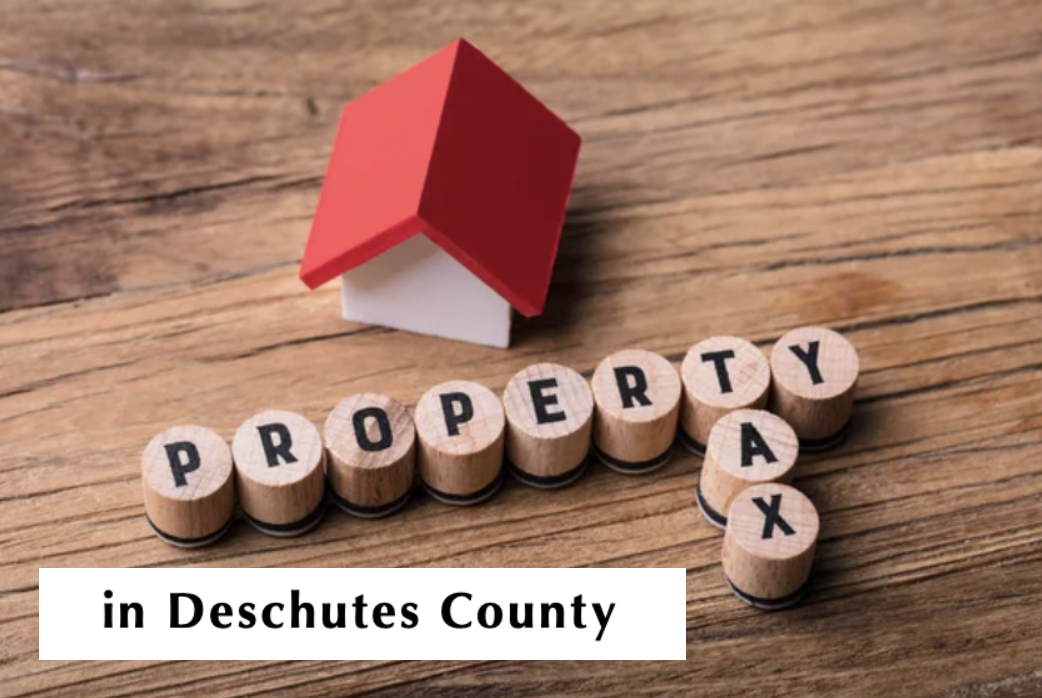Property Taxes in Deschutes County
Introduction
Today we’re going to delve into understanding how property taxes in Deschutes County are structured, calculated and what exemptions may be available for your property. In Deschutes County, Oregon, the structure of property taxes is intricately tied to the concept of Real Market Value (RMV), Maximum Assessed Value (MAV), and the role of Assessment and Valuation Methods (AVMs).
Here’s how it works…
Property Taxes in Deschutes County
- Real Market Value (RMV)
Real Market Value (RMV) is the estimated full cash value of a property based on its current market conditions. It represents the price a property would likely sell for in an open market, assuming both the buyer and seller are well-informed and acting without undue pressure.
In Deschutes County, RMV serves as the foundation for property tax assessment. The county’s assessor’s office periodically (annually) evaluates the RMV of all properties within its jurisdiction. This valuation is essential because it determines how much property tax a homeowner will owe.
- Maximum Assessed Value (MAV)
Maximum Assessed Value (MAV) is a critical factor in Deschutes County’s property tax structure. Oregon’s property tax system has Measure 5 and Measure 50 limitations, which cap the amount of property tax homeowners can be assessed. MAV represents the maximum amount a property’s assessed value can increase each year, regardless of its actual RMV growth.
When a property changes ownership or undergoes significant improvements, the MAV can be reset to the new RMV. However, for properties with long-term ownership, MAV increases are limited to a maximum of 3% per year, in line with Measure 50 regulations.
RMV serves as the foundation for property tax assessment, while MAV limits annual increases to maintain predictability for property owners. AVMs are essential tools used to assess property values accurately. Like in many other counties in the United States, are structured based on a combination of factors, including the assessed value of the property, local tax rates, and any special assessments. Here’s an overview of how property taxes are structured in Deschutes County:
- Assessment of Property Value:
- The first step in calculating property taxes is determining the assessed value of the property. In Deschutes County, property assessments are typically done by the county assessor’s office. The assessed value is an estimate of the property’s market value as of a certain date, which may not necessarily reflect its current market value.
- Property Classification:
- Properties in Deschutes County are classified into different categories, such as residential, commercial, industrial, or agricultural. Each classification may have different tax rates or exemptions applied.
- Historic Property Preservation: Properties listed on the National Register of Historic Places or designated as local historic landmarks may receive property tax incentives, including reduced property taxes or tax credits.
- Farm and Forestland Exemptions: Properties used for farming or growing timber may be eligible for special tax assessments, which can result in lower property taxes. These programs aim to promote agricultural and forestry activities.
- Enterprise Zones: Some areas in Oregon, including parts of Deschutes County, may be designated as enterprise zones. Businesses located within these zones may be eligible for property tax exemptions or reductions as part of economic development incentives.
- Renewable Energy Property: Certain renewable energy systems, such as solar panels or wind turbines, may be eligible for property tax exemptions or reduced assessments to encourage the use of renewable energy sources.
- Tax Rate:
- The tax rate for property taxes in Deschutes County can vary depending on the location within the county, as well as any special taxing districts (e.g., school districts, fire districts) that apply to the property. Tax rates are typically expressed in “tax per thousand dollars of assessed value.” For example, if the tax rate is $10 per thousand dollars of assessed value and your property is assessed at $200,000, your property tax would be $2,000.
- Exemptions and Deductions:
- Some property owners in Deschutes County may qualify for exemptions or deductions that can lower their property tax liability. Common exemptions in our area include EFU (exclusive farm use), forest exemption for primary residences and exemptions for veterans or senior citizens.
- Special Assessments:
- In addition to regular property taxes, property owners may be subject to special assessments for specific services or improvements, such as road maintenance, street lighting, or sewer services. These assessments are usually based on the benefit received by the property.
- Tax Collection:
- Property taxes in Deschutes County are typically collected by the county tax collector’s office. Property owners may have the option to pay their taxes in a lump sum or through installment plans.
- Due Dates and Penalties:
- Property tax bills in Deschutes County are usually sent out in the fall, and the taxes are due in November. Late payments can incur penalties and interest charges.
It’s important to note that property tax laws and regulations can change over time, so it’s a good idea to consult the Deschutes County Assessor’s Office or the Deschutes County Tax Collector’s Office for the most up-to-date information on property taxes in the county.


